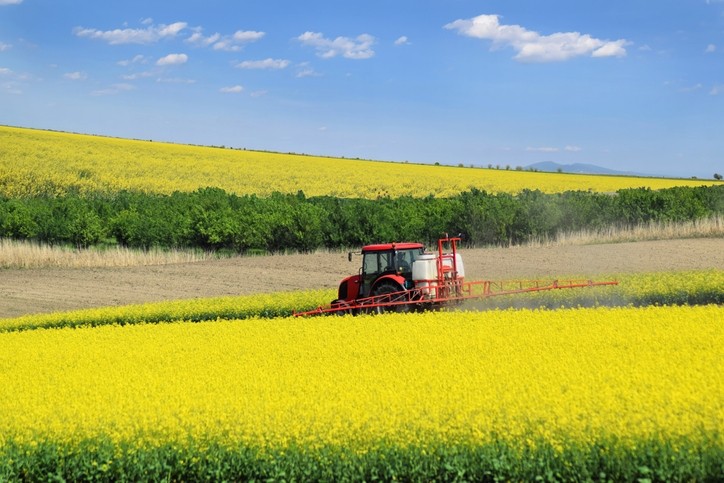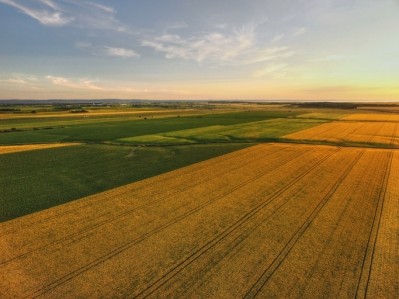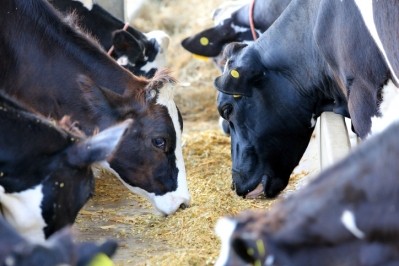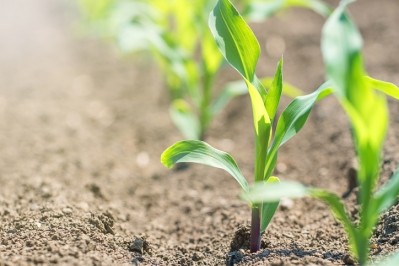Canadian canola council calls for science-based solution in trade spat

The ongoing trade challenges regarding the quality of canola shipments have reduced exports of Canadian canola seed to China, said Brian Innes, VP of public affairs for the Canola Council of Canada. However, they have not altered imports of canola meal or oil.
“Two of our largest exporters have had their licenses to export canola seed to China suspended, but we understand at the Canola Council having all exporters and producers around our table that Chinese buyers are unwilling to buy any canola seed from Canada at this time,” he told FeedNavigator.
The first exporter, Richardson International Limited, saw imports suspended earlier this month and Viterra Inc. confirmed it also had been blocked Tuesday [March 26].
Customs officials in China said earlier this month, in a release from the General Administration of Customs, that they were increasing the quarantine and laboratory testing for canola shipments from Canada because some quarantine pests were detected in the imported canola.
At that time, customs also suspended imports of canola seed from Richardson International and associated companies.
“We can confirm that China has expanded its ban on Canadian canola imports to include shipments from Viterra,” a company spokesperson told us of the more recent suspension. “We are working closely with the federal government and the Canola Council of Canada to gather more information on the situation.”
Viterra’s export products are tested to ensure they meet import standards, he said.
The statement from the General Administration of Customs said that some pests had been found in canola seed products imported from Viterra, which is why it was suspending canola imports from the company.
“We take quality concerns seriously and support a sound, science-based approach in the testing of our exports,” Viterra’s spokesperson said. “Market access issues such as this one hurt our industry and Canadian farmers.”
Addressing the export market
Currently, China accounts for about a quarter of the canola seed exported by Canada, said Innes. The Council is asking for a team of Canadian government officials to go to China to address the situation.
“This is a technical concern that requires a technical, science-based solution,” he said. “We have had ongoing interaction of Canadian government officials with Chinese government officials [and] that needs to intensify – we need to have a high-level delegation from Canada travel to China to get to the bottom of Chinese concerns and arrive at a science-based solution.”
“The industry strongly believes that it should be based in science – farmers want predictability and there is no predictability in politics,” he added.
There has been some speculation reported that the loss of the export market is linked to an ongoing political situation following Canada’s role in the arrest of Meng Wanzhou, an executive with the Chinese company Huawei, last year.
However, the Council had no comment on what could have prompted the criticism of Canadian canola or the slow of the market, said Innes. “We’re very perplexed on how the quality of our canola can be appreciated by customers around the world, how we can ship record amounts of canola to China and the customers appreciate the quality of our canola but yet, now we have all these issues that suddenly appear,” he added.
“There have been several interactions between regulators at the Canadian Food Inspection Agency and China’s customs [and] the concerns of China are at least well understood,” he said. “However, there are large differences in opinion about the validity of the concerns raised by China.”
“For example, China has raised five weed seeds and diseases and one of the diseases is blackleg – which we’ve been talking about with the Chinese for 10 years,” he added. It would not be a surprise to find blackleg in canola as it tends to be present in the oilseed globally.
“We are very perplexed because the quality of our canola has not changed, but yet we’re seeing significant action taken by Chinese regulators,” he said.
Additionally, some of the issues raised regarding the presence of weed seeds in canola exports are also perplexing because there is no evidence of some of the species mentioned being found in Canada, he added.
Prior to the suspension of the licenses, there were notices of noncompliance, said Innes. However, there was no “indication that there was any legitimate phyto-sanitary issue that led to those noncompliances.”
“We’ve had no other concerns from any other global customer, [and] we believe in Canada that we have the best quality assurance system for canola compared to any other alternative in the world,” he said. “It’s very unfortunate that China has taken these actions, and we’d like it to be resolved as quickly as possible.”
Export numbers
Prior to the export slowdown, Canada had been experiencing growth in demand from China for canola seed and products, according to information from a US Department of Agriculture (USDA) trade report.
About 30% of Canada’s canola meal was exported to China during the 2017/18 marketing year, the department said. Exports in the 2018/19 marketing year reached record levels through December but started to slow in January.
Canola seed is the largest portion of the canola product exports to China, said Innes. In 2018, Canada exported about 5m tons of canola seed worth about $2.7bn CAN.
The total export market for canola products last year was about $4.4bn CAN, according to council information. About 1.1m tons of oil and 1.4m tons of canola meal also were exported.
“China has been a consistent market for at least the last decade,” he said. “It’s a market that has shown strong growth over time – in fact, 2018 saw records set for Canadian exports of canola oil, canola meal and canola seed to China.”
“They have been very strong customers – they appreciate the value of our high-quality oil and the protein to feed their fish and livestock,” he added.











